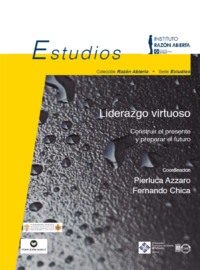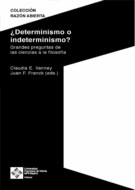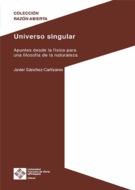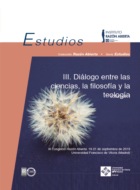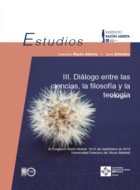Kitabı oku: «Liderazgo virtuoso»
La humanidad necesita una profunda renovación cultural; necesita redescubrir esas virtudes que constituyen el fundamento sólido sobre el cual construir un futuro mejor para todos. Las situaciones de crisis por las que actualmente está atravesando —ya sean de carácter económico, alimentario, ambiental o social— son también, en el fondo, crisis morales relacionadas entre sí. Estas obligan a replantear el camino común de los hombres. Obligan, en particular, a un modo de vivir caracterizado por la sobriedad y la solidaridad, con nuevas reglas y formas de compromiso, apoyándose con confianza y valentía en las experiencias positivas que ya se han realizado y rechazando con decisión las negativas. Sólo de este modo la crisis actual se convierte en una oportunidad de discernimiento y de nuevas proyecciones.
Humanity needs a profound cultural renewal; it needs to rediscover those virtues which can serve as the solid basis for building a brighter future for all. Our present crises – be they economic, food-related, environmental or social – are ultimately also moral crises, and all of them are interrelated. They require us to rethink the path which we are travelling together. Specifically, they call for a lifestyle marked by sobriety and solidarity, with new rules and forms of engagement, one which focuses confidently and courageously on strategies that actually work, while decisively rejecting those that have failed. Only in this way can the current crisis become an opportunity for discernment and new strategic planning.
Benedicto XVI
Liderazgo virtuoso
Construir el presente y preparar el futuro

Colección Razón Abierta serie Estudios
Director
Leopoldo José López Prieto (Universidad Francisco de Vitoria)
Comité Científico Asesor
Daniel Sada (Universidad Francisco de Vitoria)
Federico Lombardi S. J. (Fundación Joseph Ratzinger)
Stefano Zamagni (Fundación Joseph Ratzinger)
Paolo Benanti (Pontificia Universidad Gregoriana)
Andrew Briggs (Universidad de Oxford)
Rafael Vicuña (Pontificia Universidad Católica de Chile)
Javier Prades (Universidad San Dámaso)
Este proyecto ha sido posible gracias al apoyo de la subvención de Templeton World Charity Foundation, Inc. Las opiniones expresadas en esta publicación pertenecen a los autores y no reflejan necesariamente las de Templeton World Charity Foundation, Inc.
This project has been made possible through the support of a grant from the Templeton World Charity Foundation, Inc. The opinions expressed in this publication are those of the authors and do not necessarily reflect the views of the Templeton World Charity Foundation, Inc.
© 2020 Pierluca Azzaro y Fernando Chica Arellano de la coordinación
© 2020 Los autores de sus textos
© 2020 Editorial UFV
Universidad Francisco de Vitoria
editorial@ufv.es // www.editorialufv.es
Primera edición: diciembre de 2020
ISBN edición impresa: 978-84-18360-57-2
ISBN edición digital: 978-84-18360-58-9
ISBN edición ebook: 978-84-18360-68-8
Depósito legal: M-29189-2020
Preimpresión: MCF TEXTOS, S. A.
Impresión: Producciones digitales Pulmen, S. L. L.
Queda prohibida, salvo excepción prevista en la ley, cualquier forma de reproducción, distribución, comunicación pública y transformación de esta obra sin contar con la autorización de los titulares de la propiedad intelectual. La infracción de los derechos mencionados puede ser constitutiva de delito contra la propiedad intelectual (arts. 270 y ss. Código Penal). El Centro Español de Derechos Reprográficos (www.cedro.org) vela por el respeto de los citados derechos.
 | Esta editorial es miembro de UNE, lo que garantiza la difusión y comercialización de sus publicaciones a nivel nacional e internacional. |
Este libro puede incluir enlaces a sitios web gestionados por terceros y ajenos a EDITORIAL UFV que se incluyen solo con finalidad informativa. Las referencias se proporcionan en el estado en que se encuentran en el momento de la consulta de los autores, sin garantías ni responsabilidad alguna, expresas o implícitas, sobre la información que se proporcione en ellas.
Impreso en España - Printed in Spain
ÍNDICE
Virtuous Leadership and Christian Humanism: A Preliminary Thought
Pierluca Azzaro
Introducción
Federico Lombardi
I. La Voz de la Iglesia
Le sfide della regione panamazzonica: Cooperazione necessaria tra gli Organismi internazionali e la Chiesa cattolica e leadership etica
Pedro Ricardo Barreto Jimeno
El liderazgo ético a la luz del magisterio del papa Francisco
Francesc Torralba
Solidarity and Development: Toward an Ethics of the Common Good
Stephan Kampowski
Il contributo del Magistero dei papi all’opera delle Organizzazioni internazionali
Fernando Chica Arellano
II. La voz de las instituciones internacionales
Laudato Si y los ODS 2030: Una oportunidad para relanzar el multilateralismo y salvar el planeta
René Castro
Building the Present and Preparing the Future with an Ethical Leadership
Maria Helena Semedo
L’impegno dell’IFAD per i popoli indigeni
Mattia Prayer Galletti
III. La voz de los expertos: agricultura, economía, relaciones internacionales
Ética y sostenibilidad: Quo vadis, Terra?
José T. Esquinas Alcázar
Agroecologia, foodtech e sicurezza alimentare
Stefano Zamagni
Ethics at the Service of Development
Máximo Torero
Il presente e il futuro dei rapporti internazionali con una leadership etica
Vincenzo Buonomo
Empowerment
Pietro Sebastiani
Los autores
VIRTUOUS LEADERSHIP AND CHRISTIAN HUMANISM: A PRELIMINARY THOUGHT
Pierluca Azzaro
‘Humanity needs a profound cultural renewal; it needs to rediscover those virtues which can serve as the solid basis for building a brighter future for all. Our present crises – be they economic, food-related, environmental or social – are ultimately also moral crises, and all of them are interrelated. They require us to rethink the path which we are travelling together. Specifically, they call for a lifestyle marked by sobriety and solidarity, with new rules and forms of engagement, one which focuses confidently and courageously on strategies that actually work, while decisively rejecting those that have failed. Only in this way can the current crisis become an opportunity for discernment and new strategic planning’.1
Ten years ago, Benedict XVI strongly exhorted humanity to rediscover the ethics of reasonable and shared virtue, on the basis of which the future could be planned anew. He did this specifically in his Message for the World Day of Peace, which that year he dedicated to respect and care for the creation and which had the significant title ‘If you Want to Cultivate Peace, Protect the Creation’. Indeed, the very close connection that exists between the protection of the creation and the safeguarding of justice and peace is a common theme that pervades the Magisterium of the Popes at the end of the twentieth century and the beginning of the twenty-first century. Benedict XVI himself, emphasised this: ‘Twenty years ago, Pope John Paul devoted his Message for the World Day of Peace to the theme: Peace with God the Creator, Peace with All of Creation». He emphasized our relationship, as God’s creatures, with the universe all around us. ‘In our day’, he wrote, ‘there is a growing awareness that world peace is threatened… also by a lack of due respect for nature’. He added that ‘ecological awareness, rather than being downplayed, needs to be helped to develop and mature, and find fitting expression in concrete programmes and initiatives’. Previous Popes had spoken of the relationship between human beings and the environment. In 1971, for example, on the eightieth anniversary of Leo XIII’s Encyclical Rerum Novarum, Paul VI pointed out that ‘by an ill-considered exploitation of nature (man) risks destroying it and becoming in his turn the victim of this degradation’. He added that ‘not only is the material environment becoming a permanent menace – pollution and refuse, new illnesses and absolute destructive capacity – but the human framework is no longer under man’s control, thus creating an environment for tomorrow which may well be intolerable. This is a wide-ranging social problem which concerns the entire human family’.2
More generally, the intellectual and human journey of Joseph Ratzinger has been marked by awareness that, in the history of humanity, the gravest crises and the most dramatic and inhuman regressions have always coincided with the obscuring of the ethics of authentic virtue: ethics of virtue that are based upon the harmonious and indissoluble unity of their constituent elements – faith and reason. His theological output on this subject has been as broad as it has been deep.3
I will confine myself here to citing a homily that Benedict XVI gave forty years ago, specifically on the eve of the first and historic elections for the European Parliament. A few weeks later European citizens chose their leadership, and indeed the homily had the significant title: ‘The Responsibility of Christians for Europe’. On that occasion, the then Archbishop of Munich and Freising, commenting on the readings of the day, emphasised that when Paul invited the Philippians to guide their public and private lifestyles by doing ‘whatever is true, whatever is honourable, whatever is just, whatever is pure, whatever is lovely, whatever is gracious, if there is any excellence and if there is anything worthy of praise’ (Phil 4:9), he consciously used terms that belonged totally to Greek moral philosophy. And in doing this, Paul invited the Philippians to follow the wisdom of Greece, that is to say, to follow reason and act according to reason. It is evident that one is not dealing here, and paradoxically specifically in Paul, with a faith that in relation to reason declares itself superfluous in the context of a process where reason will progressively become completely self-sufficient. On the contrary, at the moment of its greatest purification, Greek reason was specifically a perception of what it did not possess to be truly, fully and lastingly itself. It was awareness of the support that it needed to remain truly human and reasonable, that is to say, directed towards good. This was required by the ethical parameters that could not be self-given for it to remain truly free: at its highest moment Greek reason – beyond all of its knowledge and power – had insight into what constituted its summit and completion – to perceive the eternal, to be sensitive to God. It is here, for Ratzinger, that should be sought the meaning of the mysterious episode narrated in Acts 16:6-10, which marks the beginning of the ethics of Christian virtue: the Macedonian, who appears himself in a dream to Paul and beseeches him to come to him to help him, represents the spirit of the Greek world, he represents reason. And with Paul, who sails for Greece, is the Spirit of Jesus Christ, of God made man, to answer this supplication, to ‘grasp the extended hand of reason’.4 This is the moment of the birth of what Ratzinger also defines as ‘humanism of the incarnation’ as an interior identity, as the ethos of Europe and then of the West. ‘What Paul brings to the Macedonians is, first of all, encounter with Him, true God of true God and, at the same time, true man, who suffered for us, who was crucified and buried; who rose again on the third day, and who brought with him human nature in the glory of God ‘to prepare a place for you’» (Jn 14:2). The figure of Jesus Christ is at the centre of European history and is the foundation of true humanism, of a new humanity. Because if God became man, then man acquires a dignity that is totally new. If, instead, man is only the product of a chance evolution, then his very humanity is an accident and thus, at a certain point, it will be possible to sacrifice man for apparently higher purposes. But if God, instead, has created and willed every individual man, things are completely different. And if God Himself became a man, if He even suffered for man, then man shares in the dignity specific to God. Whoever errs about what man is, attacks God Himself. Respect for human dignity and respect for the human rights of each individual man, is the foundation of all authentic progress. Whoever, for a purported higher progress, abandons faith in Jesus Christ, abandons the foundation of human dignity. From this Christian humanism, the humanism of the incarnation, developed the peculiar character of Christian culture. All of its specific characteristics at a deep level can be traced back to faith in the incarnation, and they dissolve as soon as this faith is removed.5
In other terms, morality always lives inscribed in a broader religious horizon that constitutes its breath and vital context. Outside this context, it becomes asphyxiated and formal; it weakens and then dies. The ethical recognition of the sacredness of life, and commitment to respect for it, needs faith in the creation as their horizon. Atheistic humanism, to which Christian humanism is opposed, in the final analysis is a contradiction in terms.
From this comes a consequence of great importance. In conformity with their nature, the virtues of Christianity can also be achieved without confessing Christianity; indeed, they can be achieved in the context of a non-Christian religion as well. However, they cannot be achieved in the context of a State that sees itself, in principle, as totally agnostic towards religion and that, as a consequence, tolerates faith only as a private opinion that cannot advance any public claims. A kind of State of this character – not secular but secularist – which gives to Christian faith substantially only that private tolerance that ancient Rome gave to it – in the end will always trample on human dignity, will always show itself to be the enemy of creatures and of the creation.6
Specifically on this basis, Joseph Ratzinger/Benedict XVI, in continuity with his predecessors – and his successor Francis in continuity with him – has always emphasised that to obtain fruitful dialogue with Islam and the safeguarding of the dignity of every human person and the creation, we should value the way of understanding Islam starting with its core – total dedication to God. It is in this sense that we should understand the incipit of the Document on Human Fraternity for World Peace and Living Together, which declares: ‘Faith leads a believer to see in the other a brother or sister to be supported and loved. Through faith in God, who has created the universe, creatures and all human beings (equal on account of his mercy), believers are called to express this human fraternity by safeguarding creation and the entire universe and supporting all persons, especially the poorest and those most in need’.7
At the same time, naturally, this is a matter of rejecting, as well as the aggressive secularism of the Western kind, the interpretation of political-revolutionary Islam, where the religious element becomes a part of a cultural chauvinism and is thus subordinated to political demands. Benedict XVI thus wrote very significantly in his post-synodal exhortation Ecclesia in Medio Oriente of 2012: ‘Like the rest of the world, the Middle East is experiencing two opposing trends: secularization, with its occasionally extreme consequences, and a violent fundamentalism claiming to be based on religion. Some Middle Eastern political and religious leaders, whatever their community, tend to look with suspicion upon secularity (laicité) as something intrinsically atheistic or immoral. It is true that secularity sometimes reduces religion to a purely private concern, seeing personal or family worship as unrelated to daily life, ethics or one’s relationships with others. In its extreme and ideological form, secularity becomes a secularism which denies citizens the right openly to express their religion and claims that only the State can legislate on the public form which religion may take. These theories are not new. Nor are they confined to the West or to be confused with Christianity. A healthy secularity, on the other hand, frees religion from the encumbrance of politics, and allows politics to be enriched by the contribution of religion, while maintaining the necessary distance, clear distinction and indispensable collaboration between the two spheres. No society can develop in a healthy way without embodying a spirit of mutual respect between politics and religion, avoiding the constant temptation either to merge the two or to set them at odds. The basis of a constructive relationship between politics and religion is, first and foremost, human nature – a sound understanding of man – and full respect for inalienable human rights. A sense of this correct relationship should lead to the realization that relations between the spiritual (religious) and the temporal (political) spheres should be marked by a kind of unity in distinction, inasmuch as both are called, while remaining distinct, to cooperate harmoniously in the service of the common good. This kind of healthy secularity ensures that political activity does not manipulate religion, while the practice of religion remains free from a politics of self-interest which at times is barely compatible with, if not downright contrary to, religious belief. For this reason, a healthy secularity, embodying unity in distinction, is necessary and even vital for both spheres. The challenges raised by the relationship of politics and religion can be met patiently and courageously through a sound human and religious formation. Constant emphasis needs to be put on the place of God in personal, family and civic life, and on the proper place of men and women in God’s plan. Above all, greater prayer is required for this intention’.8
To respond effectively to the great challenges of the present, investing in suitable formation is of decisive importance. Against the acritical acceptance of every ‘trend’ because of the simple fact that it is, or seems to be, supported by the majority, we need to reawaken, specifically in future leaders, the sensitivity of man towards truth, a sense of God, and thus the energy of the moral conscience, without which no commitment to safeguarding creatures and the creation will be really effective.
And it is exactly within this framework that we should locate the contribution that it is intended to make with the Roman Study Seminars on Virtuous leadership presented here and with the following ‘Joint Diploma in Virtuous Leadership’ that the Joseph Ratzinger-Benedict XVI Vatican Foundation is about to launch. It is doing this, in cooperation with various Roman pontifical universities, with the ‘Expanded Reason Institute of the University Francisco de Vitoria’ of Madrid, and with the support of the Templeton World Charity Foundation: ‘Humanity needs a profound cultural renewal; it needs to rediscover those virtues which can serve as the solid basis for building a brighter future for all’.
1 If you Want to Cultivate Peace, Protect the Creation. Message of His Holiness Pope Benedict XVI for the Celebration of the World Day of Peace, 1 January 2010. In: http://www.vatican.va/content/benedict-xvi/en/messages/peace/documents/hf_ben-xvi_mes_20091208_xliii-world-day-peace.html
2 Ibidem.
3 The great addresses that Benedict XVI has given on this subject – at the University of Regensburg, at the College des Bernardins of Paris, at Westminster Hall in London, at the Bundestag of Berlin, at La Sapienza University in Rome, and yet others – constitutes almost the summit of an analysis that has lasted a lifetime. Volume 3, of two tomes, of the Opera omnia of Joseph Ratzinger, is explicitly dedicated to this subject. Cf. Joseph Ratzinger, Der Gott des Glaubens und der Gott der Philosophen. Philosophische Vernunft – Kultur – Europa – Gesellschaft, 3/1 and 3/2 of the Joseph Ratzinger Gesammelte Schriften (JRGS) (Herder, Freiburg im Breisgau, 2020).
4 Joseph Ratzinger, Die Verantwortung des Christen für Europa. Predigt zum Gottesdienst am 12. Mai 1979 im Dom zu München, JRGS 3/1, p. 788ff.
5 Cf. Joseph Ratzinger, Wahrer Friede und wahre Kultur: Christlicher Glaube und Europa. Homily given on the occasion of the visit of a delegation of the German Bishops’ Conference to the Polish episcopate on 13 September 1980: JRGS 3, p. 792ff.
6 Cf. in this sense, only as example, the speech by Benedict XVI before the German Bundestag on 22 September 2011.
8 Post-Synodal Apostolic Exhortation Ecclesia In Medio Oriente of His Holiness Pope Benedict XVI. In: http://www.vatican.va/content/benedict-xvi/en/apost_exhortations/documents/hf_ben-xvi_exh_20120914_ecclesia-in-medio-oriente.html
